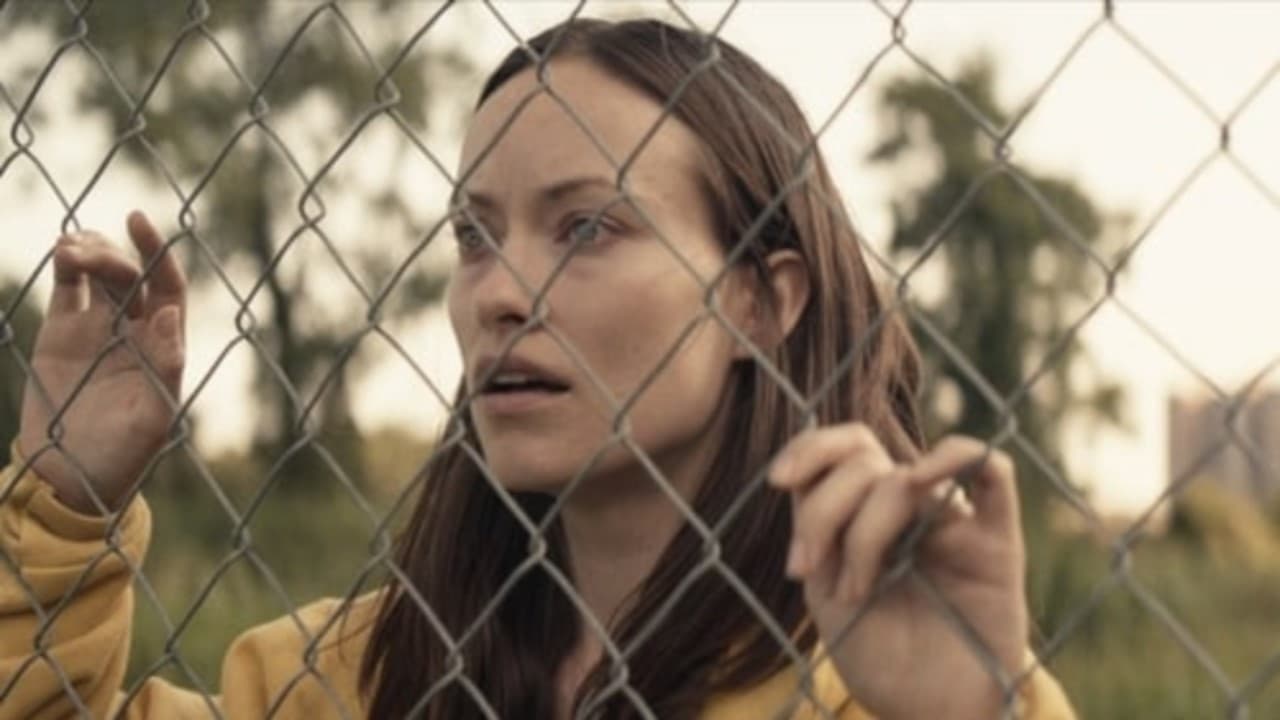

Those who didn't like the ending, or said it left them hanging, just didn't get it.First off, I think the movie was, most importantly, REAL. It was how real people, in the real world cope, not Hollywood people, or how Hollywood THINKS real people would. The real world is ugly, dirty, and selfish, but can also be beautiful, innocent, and full of wonder if you look at all of it and don't just focus on the negative. Its about a couple falling apart and doing things they normally would not do. With her the cutting, having sex with a stranger, smoking DMT, and listening to metal. Him, using his pull as a cop to find his meeting friend's daughter's killer's address. The loser brother-in-law whose life is a mess (doesn't everyone family have someone like this?). As for the ending, she promised to take him to Africa to see the elephants, but instead actually ends up finding him an elephant! And by doing so, she looks into the elephant's eyes and realizes that she lost her baby too. They lock eyes in mutual pain, loss, grieving, understanding. In that moment, she is able to connect with another mother who understands what it is like to lose a child. So he has his meetings, she got an elephant. What more do you want from an ending? Want to see if they let her adopt the kid? If she went back to teaching? She still is going to need a LOT of work, either years of therapy or group, an elephant can't fix broken. But anyway, who cares? That would be the boring part. May as well leave it on a high note.
... View MoreThe movie ending left you hanging, as in, is that all?, that alone deserves knocking off a 1/2 point, then take into consideration how squirly Olivia Wildes's character became and the fact she was unfaithful to her movie role husband played by Luke Wilson.Here comes the part where everything that needs to be said has been said, but IMDb has their stupid rule of 10 lines minimum.No 1 and I mean know 1 in regards for cinemagraphic art would have rated this movie higher than a 5.Sad thing is that even though Olivia Wilde is not an experienced movie producer judging from the garbage I have seen put out by those who are tells me it would not have made a difference.If as it is said that manure runs down hill poorly written (Screen Writers), or poorly directed, character roles portrayals are all reflections of a poorly produced movie.
... View MoreI think it would be, at least...The movie is pretty much flawless, thanks to a wonderful work of Reed Morano in her directional debut and to the writer, also a debut, Chris Rossi, that delivered that beautiful and sad story.A good director can save a shitty cast... A wonderful cast can't work with a lousy director. Don't know why i wrote that, 'cause there's nothing to do with the movie! Maybe, I was preparing my queue to say that the cast was also brilliant.Olivia Wilde, Luke Wilson, Giovanni Ribsi, John Leguizamo, Elizabeth Moss, Juno Temple... The boy... Ty Simpkins... This boy is everywhere! From blockbusters to smaller movies... Literally, he's in the biggest Box Office of the year and in the one of year's most praised movies by the critics. Still, I think he needs do more, play more parts, before he can be called a great actor.As I was saying, with that amazing cast, the movie could have at least more ten minutes. Leguizamo and Ribsi... Man I love them... They are that guys who do an awesome work in comedy... You recognize them, you recognize the signature, is good, you love it... Then, they do a drama, and you are like "How is that possible? How can they be that funny and be also so great in that drama?". It goes to Luke Wilson also. I don't think he is funny at all, but he is more then the guy in Legally Blond... And the rest of the cast... One scene with Elizabeth Moss, a great scene... One with Juno Temple, also a very good scene... BUT, after all, was a movie about Olivia's and Luke's character. The focus were in that couple that passed through grief in its on terms. Man that movie hurts sometimes.Allow me to make a comparison. We have Reed's Meadowland (2015), on the red corner, and John Cameron Mitchell's "Rabbit Hole" (2010), in the blue corner. Both movies are about a couple trying to deal with the loss of a son. Meadowland has 105 minutes, including credits, while Rabbit Hole has 91, also with credits. Still, I feel like Rabbit Hole is the longest movie that I've ever watched in my life. AND I WATCHED THE EXTENDED LORD OF THE RINGS TRILOGY IN ONE WEEKEND! Rabbit is a sad movie and most of the time you just have to look away 'cause you are sick of it! Meadowland is a completely different story. I mean, the story is very alike, still is a different story, but what I meant was that "This is not the case with 'Meadowland'".Meadowland is a sadistic voyeurism. You watch that couple "deal" with their loss, you watch'em "try" to move on, you watch'em hurt 'emselves and each other, you watch they grow apart, you watch Phil receiving alone the news about his son's death, while Sarah is f*cking the foster-father of the boy who she's obsessed with. AND TRY TO GO WITH THE KID TO AFRIKA! MAN THAT IT HEAVY STUFF... And still you're not able to blink, or even breathe sometimes through the movie, 'cause you don't want to loose anything. And it is over. You want more, but the story came to its end. You had the start, the development and the end. It came in a straight line, a clear path, but all you can think is "... man, I wouldn't mind to know a little bit more of the rest of the characters, as Tim or Alma, or Even Joe and Shannon..." But this movie is about Sarah and Phil, and in that case, mission accomplished.As an epitome, "Meadowland" has the greatest performances of from the two protagonists, and a perfect debut from the director and writer.
... View MoreThe movie did a great job in hitting the main conflict trigger so early at the start point. And after that we get to see the devastating effects of how non-reconciled loss can lead to turmoil little by little. In it we get to see superb acting done by Olivia Wilde and quite a balanced job by Luke Wilson. The other cast members also helped much in keeping the mood constant all the way through. Ty Simpkins did well in depicting the Adam's symptoms. Giovanni Ribisi succeeded in creating a character that's complicating things up, while John Leguizamo, Elisabeth Moss and Kevin Corrigan also put up well in their parts. Yet the movie seems so much lacking in the story development, as we see Phil and Sarah repeat things up so very often without any significant twist or turn. This makes the ending to be a disappointment as it's really something one predicted even from the movie's start.
... View More